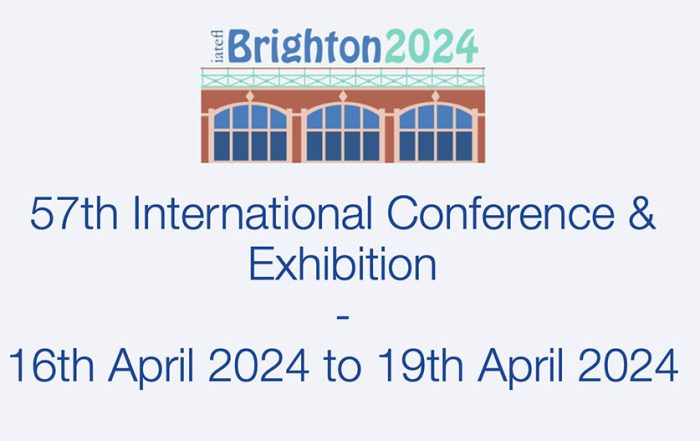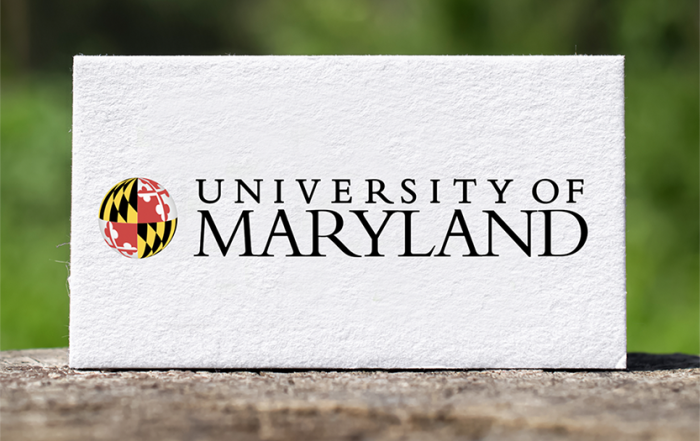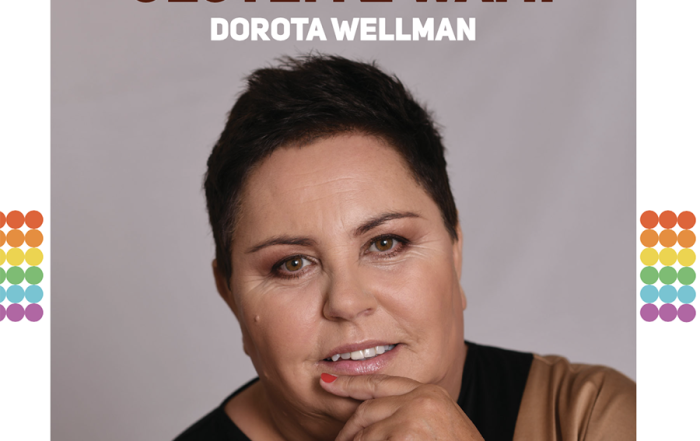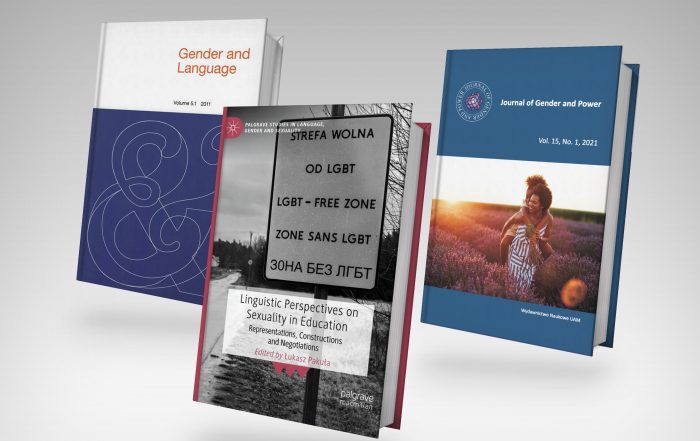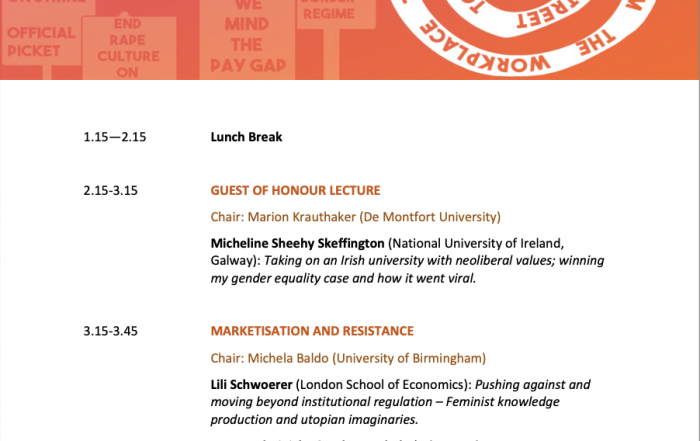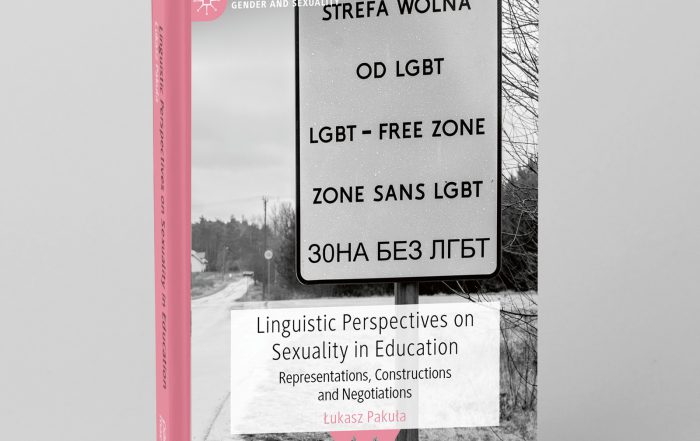Lavender Languages & Linguistics 24 in Nottingham
Organised for the very first time outside Washington DC, Lavender Linguistics and Languages 24th Conference, gathered a multitude of researchers from numerous disciplines at the beauttiful Nottingham University campus (UK). No matter how divergent aproaches the scholars represented, they were united in their research interest, i.e. exploring interesections between language and sexualities. It was an instructive as well as a chalenging experience. The former as getting to know the most recend trends in research is every scholar’s unwritten duty, the latter as being immersed in unfamiliar methodologies requires extreme open-mindedness. For what it’s worth, it was a genuine intellectual feast. Read more…

During the event, I took part in a panel on corpus linguistics vis-a-vis language and sexuality studies organised by prof. Heiko Motschenbacher. The title of my presentation was “Language in education: exploring ways in which CL can aid dictionary and textbook critique”. The following is the abstract, however, feel free to get in touch if you’re interested in the subject.
Abstract
Łukasz Pakuła
Adam Mickiewicz University
Language in education: exploring ways in which CL can aid dictionary and textbook critique
Language in educational settings has come to be understood not merely in terms of a medium of instruction but more importantly as a conduit of ideologies, also pertaining to gender and sexuality (King 2015). Indeed, language use in education has undergone substantial scrutiny both in the spoken and written variation (e.g. Mustapha and Mills 2015).

This paper explores potential benefits and pitfalls of employing Corpus Linguistics techniques for critiquing learning materials, in particular dictionaries and textbooks. It has been demonstrated that students and teachers alike pay attention to gender- and sexuality-related discourses cemented in these two types of learning materials (e.g. Pakuła et al. 2015). However, given the inherent difficulties of quantitatively analysing textbooks (Sunderland 2015a) and sampling dictionaries (Bukowska 2010), researchers opt for qualitative analyses at the expense of pursuing alternative avenues for obtaining quantitative data. This has led to the situation in which the heterogeneous nature of paradigms employed has resulted in limited possibilities of carrying out meta-analyses and reliably assessing the impact that this critique has had on textbook and dictionary production (see Lee 2010). I will argue that looking at dictionaries and textbooks in their entirety as language data that can be subject to Corpus Linguistics enquiry can yield interesting results with regard to levels of heteronormativity (Sunderland 2015b) which cannot be obtained via sampling or qualitative scrutiny.
References:
Bukowska, Agnieszka Anuszka. 2010. ‘Sampling techniques in metalexicographic research’ , in: Anne Dykstra and Tanneke Schoonheim (eds.), Proceedings of the XIV Euralex International Congress. Ljouwert: Afûk, 1258–1269.
King, Brian W. 2015. ‘Language and sexuality in education’ , in: Patricia Whelehan and Anne Bolin (eds.), The International Encyclopedia of Human Sexuality. Oxford and New York: Wiley-Blackwell, 649–719.
Lee, Jackie F. K. 2010. ‘Gender Representation—An Exploration of Standardized Evaluation Methods’ , Sex Roles 64, 1-2: 148–150.
Mustapha, Abolaji S. and Sara Mills. 2015. ‘Gender representation in learning materials’ , in: Sara Mills and Abolaji S. Mustapha (eds.), Gender Representations in Learning Materials in an International Context. London: Routledge, 9–18.
Pakuła, Łukasz, Joanna Pawelczyk and Jane Sunderland. 2015. Gender and sexuality in English language education: Focus on Poland. London: British Council.
Sunderland, Jane. 2015a. ‘Gender (representation) in foreign language textbooks: avoiding pitfalls and moving on’ , in: Sara Mills and Abolaji S. Mustapha (eds.), Gender Representations in Learning Materials in an International Context. London: Routledge, 19–34.
Sunderland, Jane. 2015b. ‘Similarities and distinctions in gender and language study’ , in: Allyson Jule (ed.), Shifting Visions: Gender and Discourses. Newcastle upon Tyne: Cambridge Scholars Publishing, 5–26.
Related posts
Speaking at the 57th IATEFL Conference in Brighton!
Speaking at the 57th IATEFL Conference in Brighton! I am thrilled to share that my talk proposal has been accepted for the upcoming 57th International Association of Teachers of English as a Foreign [...]
Joining University of Maryland Global Campus as Adjunct Assistant Professor!
Joining University of Maryland Global Campus as Adjunct Assistant Professor! I’m excited to share some big news with you all: I’ve officially joined the University of Maryland Global Campus (UMGC) as an Adjunct [...]
Sharing Insights in Replika Magazine: A Dialogue on Language and Identity
Sharing Insights in Replika Magazine: A Dialogue on Language and Identity I recently had the honor to engage in a conversation with Joanna Chojnicka, brilliantly orchestrated by Jakub Wojtaszczyk from the Replika magazine. [...]
Reviews of “Linguistic Perspectives on Sexuality in Education: Representations, Constructions and Negotiations”
First reviews of Linguistic Perspectives on Sexuality in Education I vividly remember one of the first workshops on publishing in prestigious academic venues I attended. It was conferred during the Lavender Languages and [...]
Gender and Sexuality in the Neoliberal University Conference
Gender and Sexuality in the Neoliberal University Conference This year has been different for all of us. Most academic conferences moved online and fared pretty well there. Although, I must admit that self-identifying as [...]
This journey is over… or is it just the beginning?
This journey is over... or is it just the beginning? And it’s out! A collective effort to introduce a wholistic linguistic perspective to the study of sexuality in educational contexts Linguistic Perspectives on [...]

